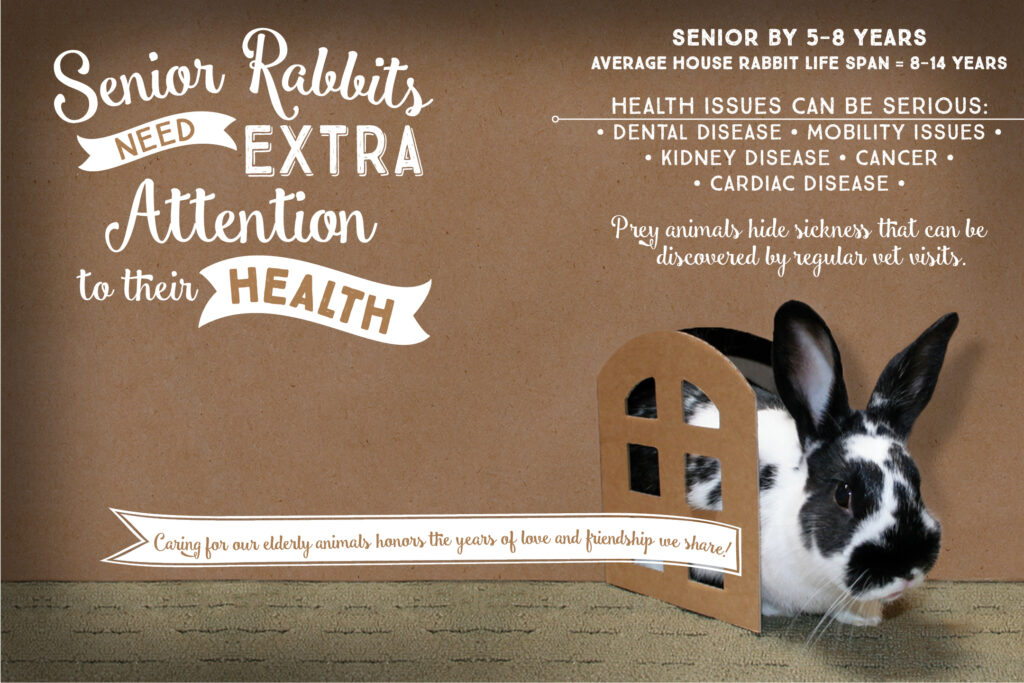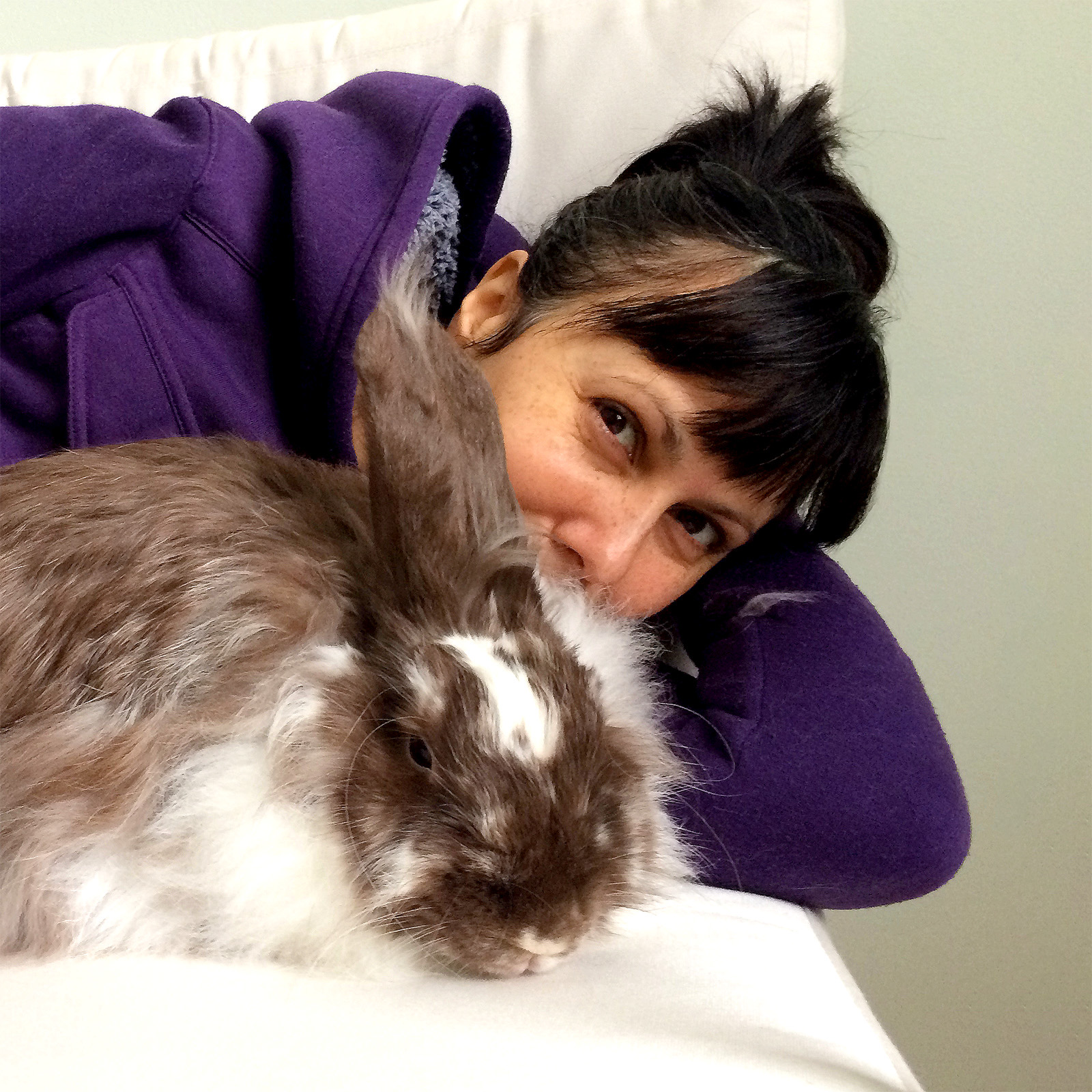Health Concerns for the Aging Rabbit
Senior rabbits (aka elderbuns) require extra attention to their health and wellness. Rabbits are prey animals who instinctively hide illness. Signs of trouble can be as subtle as a change in behavior or routine — that’s why regular veterinary checks are so important. Your vet will screen for health issues that rabbits are good at concealing. Senior rabbits (5 years+) should receive a veterinary check 2x per year and have complete blood work performed at least every other year.
Let’s look at a few serious health concerns affecting senior rabbits that all caregivers should be aware of, along with the signs and symptoms that might accompany them.
Dental problems
You may see: poor appetite, selective eating, not eating and/or weight loss, wet chin/salivating, eye discharge. Proper diet is the best way to prevent dental disease.
Changes in mobility
You may see: obvious physical disability, wet or dirty bottom with red or raw skin, weight loss, painful posture or depressed attitude. Possible causes may be arthritis, obesity, E. cuniculi, hind-end paralysis, or weakness (muscle atrophy).
Kidney disease/failure
You may see: excessive thirst, increased urination, breaking litter box training, weight loss, decreased appetite. Treatment consists largely of supportive care.
Cancer
You may see: Depending upon the type of cancer, signs and symptoms will vary. You may feel that something seems “off” without being able to identify a specific problem. Regular blood work and imaging tests are important tools to screen for cancer. If detected early, many cancers can be treated with surgery. Reproductive cancers are very common; spaying/neutering is key to prevention.
Cardiac Disease
You may see: persistent upper respiratory infection, breathing issues, lethargy, weakness, reduced appetite, weight loss or gain, breathing with neck and nose pointed upwards, reluctance to lie flat. There are a variety of strategies to manage cardiac disease. Leaving these types of problems untreated will result in low quality of life and a poor prognosis for long-term health. These medical issues require a treatment strategy planned by a rabbit-savvy veterinarian. Pain control and supportive care will play a key role in recovery and preserving quality of life.
It’s worth repeating: Aging is a natural process — a well-cared-for house rabbit can age gracefully and enjoy many golden years. Your rabbit may need some level of nursing care at some point in her life. Expect this and know that she will be grateful for your loyalty and love. Caring for our elderly companion animals is part of the commitment we make to them that honors the years of love and friendship we share.
Further Reading:
- Assisted Living: Special Needs and Disabled Rabbits
- Wabbit Wiki Elderly Rabbit Resources
- Mobility Issues: http://www.disabledrabbits.com/education.html
- Cancer: http://www.netvet.co.uk/rabbits/cancer-and-growths.htm
- Cancer: https://www.stortvet.com/cancer-in-your-rabbit-2/
- Cardiac disease: Cardiac Disease in Rabbits: More Questions Than Answers (archived)
- Dental Disease in Rabbits from HRS (archived)
- Wabbit Wiki Kidney Disease Resources
©Copyright Amy Ramnaraine. All Rights Reserved. Republished with the permission of the author.

